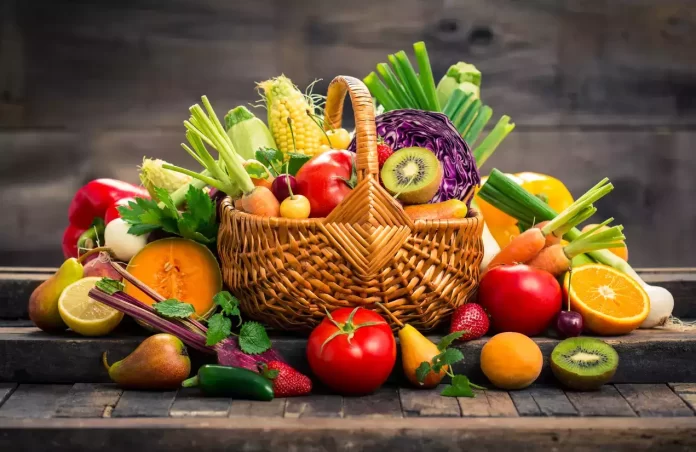Vegetables are an essential part of a balanced diet because they naturally contain a wide range of cell builders, fibers nutrients, minerals and nutrients that are crucial to the health of humans.
The importance of vegetables in our lives can’t be described in such a concise manner even though some of the most unhealthy meals, such as pizza or burgers, aren’t complete without them. Although the majority of vegetables are loaded with nutrients and vitamins, there are some are essential to eat daily for optimal well-being. The medicines of Fildena 100 mg as well as Cenforce 100 are used to treat intestinal worm infections.
Table of Contents
1. Tomatoes
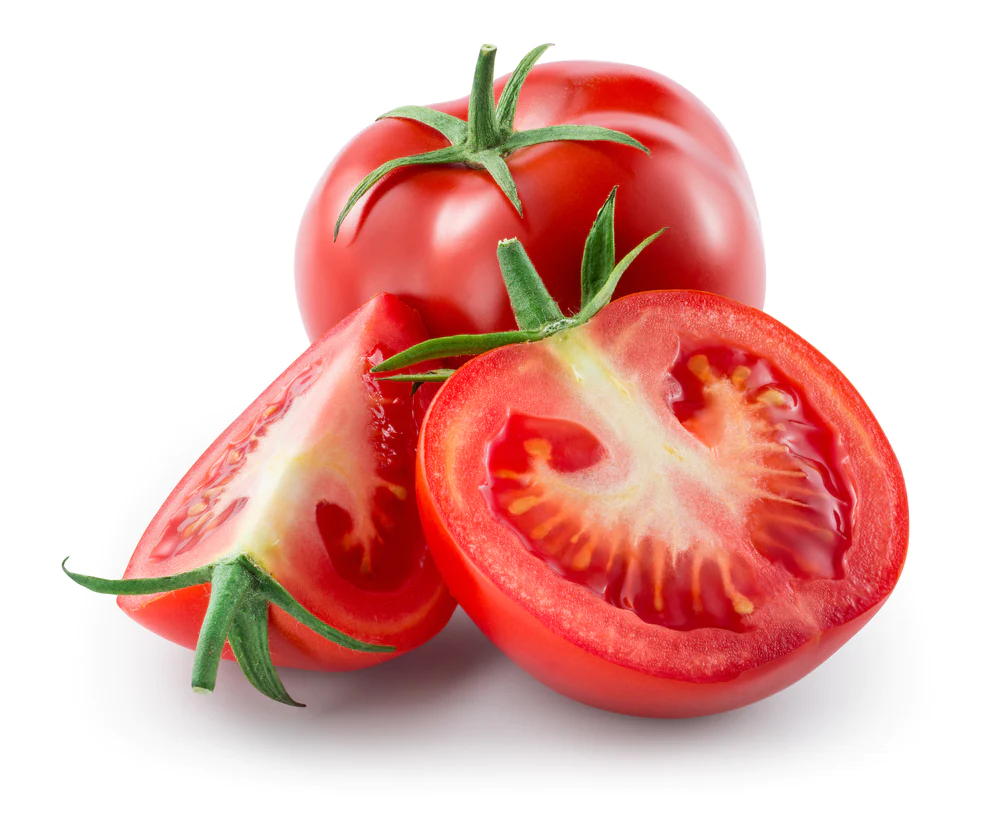
The Nutritional benefits of tomatoes are powerhouses of nutrients and are also rich sources of antioxidants that protect your heart. They contain beta-carotene, lycopene folate, potassium, flavonoids, vitamin C and vitamin E.
Tomato Nutrition Facts
Red tomatoes that are ripe 100 grams contain the following information, according to the USDA:
Calories: 18 calories
Cholesterol: is 0 milligrams
Sodium: 5 milligrams
Carbohydrates: 3.89 grams
The fiber: 1.20 grams
Fat: 1 Gram
Protein: <1 gram
Water: 95%
The addition of more tomatoes to your diet could lower the risk that you suffer from a stroke. A stroke is the time when blood flow is blocked to a particular part that is located in your brain. Research suggests that tomatoes can reduce inflammation, improve the immune system reduce the cholesterol levels and prevent blood from becoming clot-free. These things can all aid in preventing strokes.
2. Spinach

This leafy green veggie is one of the top-supplementing, thick vegetables in the world due to its remarkable adaptability and nutritional value. There is no nutritional rival for spinach. You can consume it raw, sauté it, mix it into good smoothie, or even include it in your plate with mixed leaves. One cup of spinach has sufficient Vitamin A, L-ascorbic acids, and vitamin K. All of these can boost the immune system. In addition, it is rich in cell-building substances, which helps protect you from illnesses. Research has proven that spinach is beneficial to your heart and decrease the strain on your circulatory system. Therefore, it is recommended to eat it regularly to earn the respect of Popeye.
Out of all leafy vegetables that are available, spinach is among of the most adaptable. It is possible to add it to smoothies, eat the chilled salad. You can steam it and saute it for an accompaniment to a meal and mix it into stir-fry, and even mix with baked items like brownies.
Spinach also offers a variety of health benefits. It’s rich in antioxidants and vitamins that help prevent chronic diseases and boost the brain’s, heart eyes, cardiovascular. You can include spinach in your diet to reap the benefits.
3. Onions
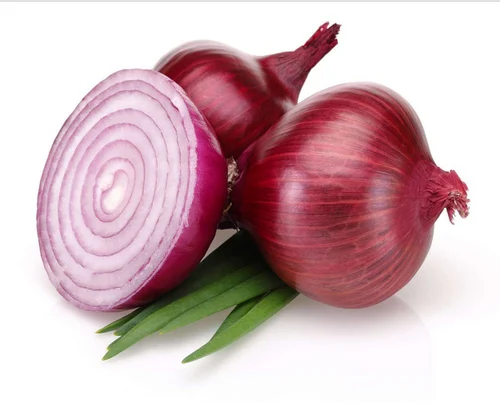
Onions contain anti-inflammatory properties that help in treating heart diseases. They also contain antioxidants, which helps to maintain the health of your heart. These antioxidants, especially Quercetin an antioxidant flavonoid help to control blood pressure which is a major reason for strokes or heart attack. Raw onions can also help lower cholesterol and triglycerides which increases blood flow and decreases the risk of developing heart disease.
In traditional treatment, onions are employed to treat bacterial infections. It assists in fighting against bacterial infections which cause coughs, colds and gastrointestinal infection. The bacterial infections caused by E. Coli or S. aureus are slowed by onions. It is believed to in the prevention of stomach ulcers and colic cancer.
Onions can enhance the flavor of any food, and earn them the title “jack of all trades.” They are utilized as a gravy, as a whole in salads, as well in soups and stock. Due to its sour flavor and smell the root vegetable can increase the appetite.
4. Carrots
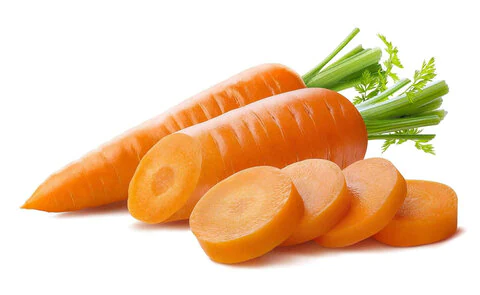
A serving of carrots is packed with significant amounts in vitamin A. Carrots appear orange due to beta carotene. This chemical acts as a cell reinforcement. The beta-carotene in the carrot is transformed in your body to vitamin A which helps prevent disease. Carrots should be present on your table when you are ready to boost your vision. Carrots also possess a pliable nature, which is very like spinach. Carrots are great with smoothies and mixed green salads and you can even consume raw.
The nutritional information for two raw carrots that are small to medium (100 grams) are:
Calories: 41
Water: 88%
Protein: 0.9 grams
Carbs: 9.6 grams
Sugar: 4.7 grams
Fiber: 2.8 grams
The Fat: 0.2 grams
If you are a fan of crunchy snacks carrots are an excellent choice. These vegetables are with nutrients, including Vitamin A and vitamin K and potassium.
While carrots are a root vegetable but they’re not so high in carbs as other root vegetables. Carrots are a bright pop of color as well as a variety of nutritious nutrients to soups, salads stews, and other dishes. Carrots aren’t very high in protein. The average cup of carrots contains only 1.2 grams of protein.
The health benefits of carrots could be attributable to their carotenoid level (vitamin A). Carrots also have a significant amount of fiber that has numerous advantages.
5. Cabbage
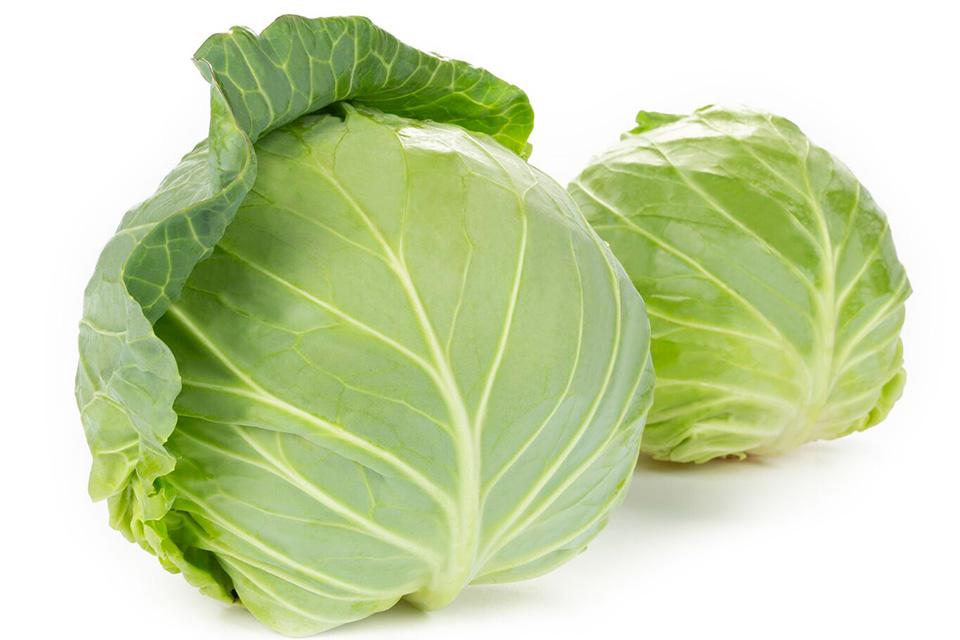
Cabbage might appear to not be an appealing vegetable but it’s packed with nutrients that will keep you healthy and fit. From improving your immune system, to improving digestive system (sometimes and with very embarrassing consequences) cabbage’s health-related benefits are worthy of a spot on your menu.
The common green leafy vegetable is available in a wide range of shapes, colors and sizes you can use to make salads, soups, sandwiches, and much more. Consume it fresh or stir-fried to reap the most benefits. Look for it in gut-healthy foods such as sauerkraut or kimchi or chopped into coleslaw to get an easy fix.
The anthocyanins present in cabbage can help reduce more than just inflammation. Studies suggest they contribute to the benefits of cabbage, by decreasing your risk of developing heart disease. Scientists have identified 36 types of anthocyanins found in cabbage, which makes it a great choice for heart health.

